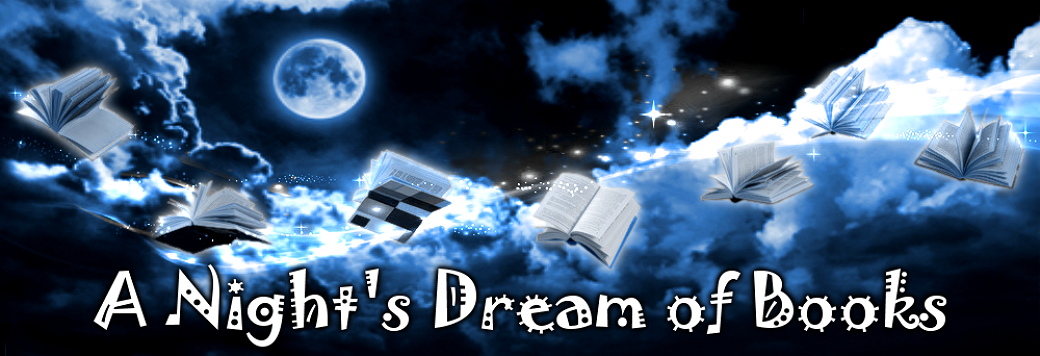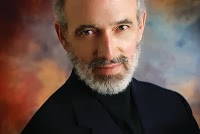Welcome to this stop on the tour
for The Unholy,
presented by
Bewitching Book Tours!!
About the Book
The Unholy
Paul DeBlassie III
Trade Paperback, 202 pages
Sunstone Press, August 1, 2013
Metaphysical Fiction, Mystery, Thriller, Urban Fantasy
Book Synopsis: A young curandera, a medicine woman, intent on uncovering the secrets of her past is forced into a life-and-death battle against an evil Archbishop. Set in the mystic land of Aztlan, "The Unholy" is a novel of destiny as healer and slayer. Native lore of dreams and visions, shape changing, and natural magic work to spin a neo-gothic web in which sadness and mystery lure the unsuspecting into a twilight realm of discovery and decision.
Print Edition
Kindle Edition
Paul DeBlassie III, PhD.
Author Interview
Maria: This
book is inspired by your thirty years of experience as a psychotherapist,
dealing with what you call “the dark side of religion”. Could you elaborate on just what this dark
side is, and how it has affected your clients?
Paul: The dark
side of religion is the use of spiritual energy or power by organized religion
in a way that hurts people. You see it when priests get people to believe in
God, to trust the church, to trust the priest, and then the person is used and
abused all because they have trusted. I’ve had patients say, “I feel like I’ve
been abused by God.” It’s how it’s registered in the deep unconscious mind…to be abused by religion is to be abused by God. I’ve been helping patients for
over thirty years heal from the dark side of religion. In The Unholy, a young
woman is face-to-face with the dark side of religion and has to decide to do
what she has to do or forever be haunted.
Maria: Why
did you think it more important to write a novel dealing with this topic, as
opposed to a self-help book?
Paul: A self-help book appeals to the conscious mind; a novel, its story
and symbols, move into another realm that bypasses defenses. It gets to you
in a way that you can’t stop. You can stop it by stopping reading The Unholy.
People have said it was too much, needed to put it down then come back; others
have wrapped themselves in a cozy blanket, sunk into the story, and let it speak
to them no matter what.
Maria: What do you see as the
central conflict in The Unholy, and
how is it embodied in the two main characters?
Paul: Destiny as healer and slayer pivots itself in the drama of a young woman’s life. Do we fulfill what we are meant to do or do we back away and run? It’s a dilemma for us as vulnerable human beings. The Unholy captures fear and potential, to run or to face the ghost and deal with what you need to deal with.
Maria: Do you see patriarchal
values as inherently evil, as opposed to matriarchal ones? Why or why not? Do we need a balance of both?
Paul: Any values are evil if they are used to oppress, to use and abuse.
Mothers can be devouring, not let go, consume their children so they don’t have
a life. In The Unholy it’s the father, paternal values gone awry via religion.
It’ll eat you alive out of a need you have to belong and to find salvation or
to find a way out of the complexities of being human. The Unholy…it pivots good
and evil, and the way balance is achieved by going into the dark forest,
sinking into self, and seeing what emerges from behind the trees.
Maria: Aside from your personal
experience with clients in your practice, what other life experiences, if any,
contributed to the writing of this novel?
Paul: The Unholy comes out of years of lived experience both in the
professional and personal realm. Here in Aztlan (New Mexico), I have been one
of those at the forefront treating those abused by priests. I came out of a
Catholic background, am well aware of the politics, power, sexual dallying
among clergy. Awareness propelled me out of this organization. I couldn’t play
it both ways. There is spiritual healing and there is religious power. The two
don’t mix. The writing of The Unholy is inspired by decades of professional
experience and personal growth.
Maria: As a first-time novelist,
how did you prepare for the writing of this book?
Paul: I prepared for the
writing of The Unholy by listening to my wife, Kathy. I’ve published three
other books in psychology and spirituality. My old publisher said I was too
controversial to publish. Kathy said, “Do a story.” So, I listened to her, and
did a story, a controversial story.
Maria: Can you tell us more about
the myth of Aztlan, and why you are so fascinated by it?
Paul: Aztlan is the mythopoeic realm of the mestizo Southwestern United
States. I was raised in it; dreams, visions, the mystic -- this is a realm of everyday
experience. It fascinated me as a kid, and fascinates me as a man. Aztlan
breathes magic in everyday life. Claire Sanchez, and the women of natural magic
in The Unholy, tap into the natural magic within the everyday realm of Aztlan.
Maria: What other mythological
sources, if any, influenced the plot of this novel?
Paul: Old Gothic masters such as Algernon Blackwood, H.P. Lovecraft, and ArthurMachen deeply influence me. They move in an invisible world that affects
everyday reality. The Unholy cast a spell of the world that lies behind what we
see from day to day. William James, the father of American psychology, in his
book The Varieties of Religious Experience continues to inspire me as the
source for seeing beyond what seems to be, into what actually is!
Maria: Do you feel that The Unholy provides the same type of
healthy criticism of organized religion that is an intrinsic part of Salman Rushdie’s The Satanic Verses? Why or why not?
Paul: Rushdie addresses this within another cultural context. The Unholy
provides a cultural criticism of not only Catholicism but Western religion as a
whole. The curanderas, the women of healing within the story, are a natural
force that eschew contrived ways, most especially religion. Healthy criticism
of religion needs to be done so that we as humans question what has become so
common that it may no longer be questioned. A friend asked what if I face the
same problems Rushdie did, the fatwa thing. What I answered is that it’s not a
problem as you’ll find in the reading of The Unholy. Life takes care of life.
Maria: What project(s) are you
currently working on?
Paul: The Dark Goddess is rambling on through my laptop. It’s a story of
love and whether bad love is better than no love. Downtown Aztlan del Sur is
the setting. It’s gritty, dark, and the myth of Aztlan conjures supernatural
energies that take a middle-aged woman into an altered reality that turns her
mind inside out and upside down so that she can come to grips with the answer to
the question of whether bad love is better than no love.
Interviewer's Note
I'd like to thank Dr. DeBlassie
for such a fascinating and
informative interview!
I hope you've all enjoyed reading
it as much as I enjoyed
bringing it to you!
About the Author
Paul DeBlassie III, PhD. is a psychotherapist and writer living in his native New Mexico. A member of the Depth Psychology Alliance, the Transpersonal Psychology Association, and the International Association for Relational Psychoanalysis and Psychotherapy, he has for over thirty years treated survivors of the dark side of religion.
SoulCare, his professional consultation practice, is devoted to the tending of the soul. One of the few therapists writing fiction with a healing emphasis, Dr. DeBlassie has been deeply influenced by the surreal beauty and natural magic of the mestizo myth of Aztlan.
The Unholy is his first novel.
Online Links
For the complete schedule
of participating blogs,
of participating blogs,
just click on the banner below!






Great interview.
ReplyDeleteI like the idea of melding contemporary issues of religion with the entire patriarchal and matriarchal beliefs and values, psychology, etc and then presenting it in a fantastic world. Sounds like a thought provoking read.
Hey, Brian!
DeleteThank you!! I really enjoyed coming up with these questions -- as you can see, I'm fascinated by this book, and hope to be able to read it at some point this year. I agree that the exploration of all these themes will definitely be very thought-provoking!
I think we need books like this one, because organized religion is certainly not exempt from the evils unfortunately to be found in human nature. The sad thing is that these evils inevitably corrupt any large institution. Church organizations are certainly as vulnerable to this as any large corporation. It's really sad that what began as a grass-roots movement -- Christianity -- went on to develop into such a huge, bureaucratic, and even corrupt institution. And the Protestant churches are no better.....
Thanks for the great comment!! : )
Thank you for hosting The Unholy!
ReplyDeleteHi, Paul!
DeleteYou're very welcome! I can't wait to read your book!! I was brought up in the Catholic Church myself, and I've always had issues with the fact that women are not allowed to be priests, for instance. I find this very ironic, in light of the reverence the Church has for the Virgin Mary. And the whole pedophilia issue is very, very disturbing.
Thanks for writing such an important book! And thanks as well for the great interview!! : )
Maria,
DeleteYour comment is quite insightful..Thank you for it and happy reading!
Hi, again, Paul!
DeleteThanks for the compliment, and you're very welcome, as well! Happy reading (and writing) to you, too!! : )